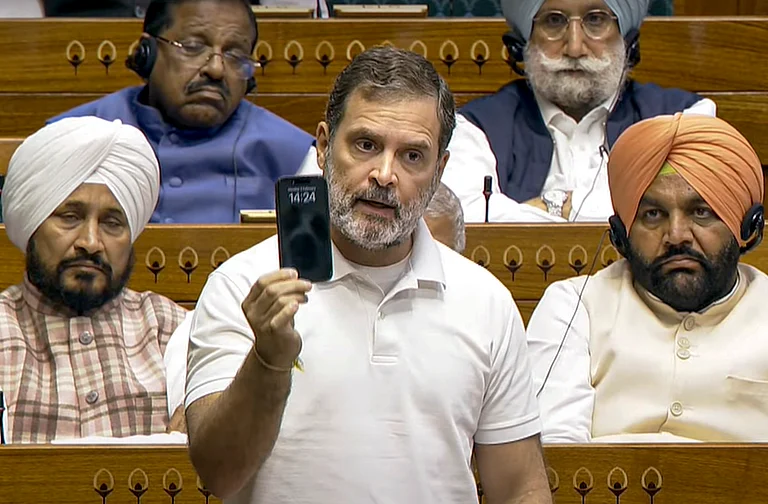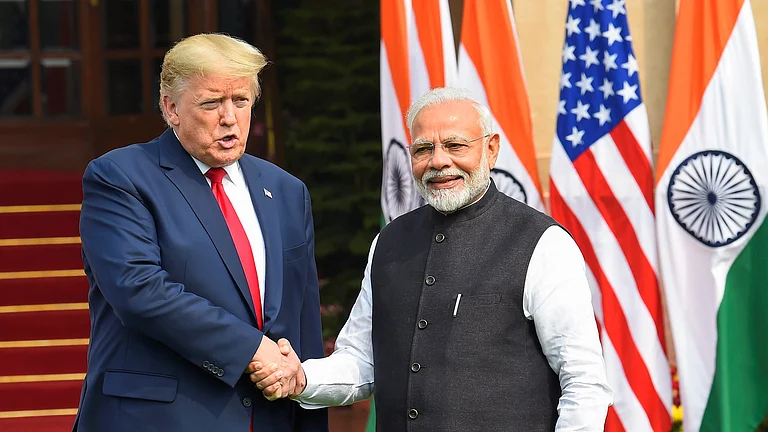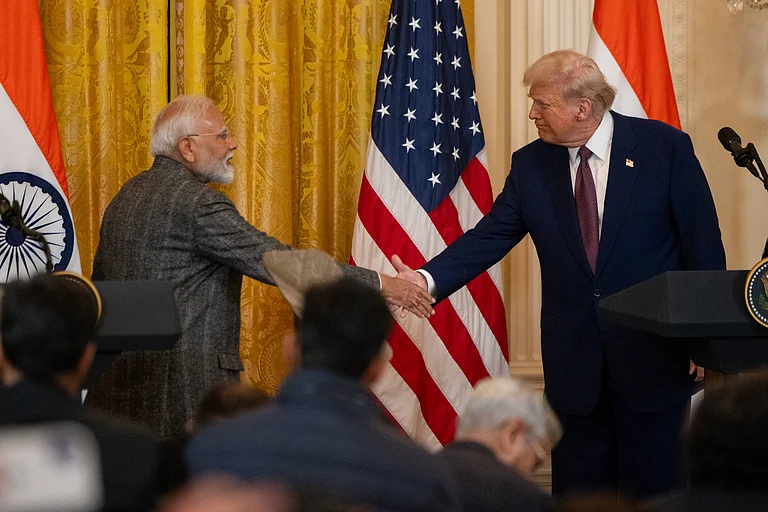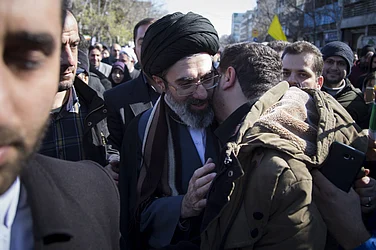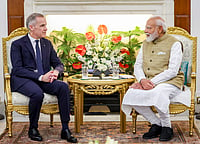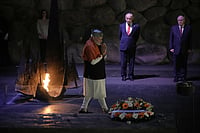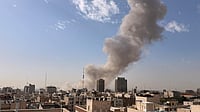India-US ties take a hit with Donald Trump’s latest announcement of a 25% tariff on Indian exports and threat of additional, unspecified charges on Russian oil and defense purchases. The unkindest cut came the same day, with Washington announcing a major U.S.-Pakistan oil exploration initiative that could undermine strategic trust. The unease was evident when Trump declared that he had forced a ceasefire between India and Pakistan. Add to this American sanctions against six Indian companies for trading in Iranian oil and petrochemicals, and the picture is complete.
Yet it is unclear whether Trump is merely applying pressure on India to finalize a trade agreement that opens India’s vast agricultural market to American products.
India was one of the first countries to begin trade negotiations early in the second Trump tenure. The joint statement at the end of Prime Minister Narendra Modi’s visit to Washington announced that a bilateral trade deal would be in place by Autumn. But so far negotiations for a basic framework is not ready. Trump, who prides himself in being a great negotiator,is applying maximum pressure on the Modi government to tie up the agreement. He wants greater access to Indian markets and opening up the agriculture and pharma sector. Agriculture is the staple livelihood of a majority of people in rural India. Flooding the markets with American diary, fruit and staples could ruin the livelihood of vulnerable small and medium sized farmers. No government dare risk the anger of farmers without paying a heavy political price. The Modi government certainly will not take such a risk.
``Trump is adept at pressure tactics . He knows that India would like to continue its defense and energy relationship with Russia. He is also miffed with Russia since they have refused to listen and come to the negotiating table . Pakistan was willing to do anything to get into the good books of the US . They will be happy that Trump has agreed to explore oil (read minerals) in restive Balochistan. That also creates competition and gets the Chinese monkey off their back. This is killing three birds with one stone. We will see that Trump will soften and sharpen his tweets alternately as the negotiations approach end August. Till then India will need to ride this out,’’ says Ambassador Anil Wadhwa, who tracks India-US relations. `` On closer reading while others in Asia have got tariffs of 15-35 percent they have also promised a lot by way of opening up their economy to investments. India has not done that. Besides Indian pharma, semi conductors and rare earths have been exempted from these tariffs. Our labour intensive industries will need to find new or newer markets, ” he adds.
India-US ties : China Threat
From being on opposite camps during the Cold War, India-US ties have taken a massive leap forward in the last two decades and more. The need to contain China’s growing political and economic might in Asia, led to a rare American consensus to use a large country like India to balance China. The breakthrough came with the India-US civil nuclear deal of 2006. India too needs the US not just for containing China, but for access to American high-end technology, investments as well as to open the door to be at the high-table of international affairs.
Successive Indian and US governments had worked on mutual beneficial ties. The quad, the US, India, Australia, Japan grouping in the Indo-Pacific is primarily a means to counter China’s growing clout in Asia and the international waterways in the Pacific and Indian Oceans. China continues to be America’s primary challenger and a major threat to India’s security concerns.
``India’s primary challenge is that for the first time in 35 years it is faced with an American administration that is not driven by strategic altruism. Every President since President Clinton, has believed that India’s rise is good for the US and is in American national security interests,’’ says Aparna Pande of the Wahington-based think tank Hudson Institute. ``This led to boost economic ties even thought India was protectionist. All the issues we see on the economic front date back decades but successive American administrations have preferred to work with India, rather than force India,’’ she adds. But Trump is at heart a businessman and does not see things from a security prism. For him making a good deal is enough.
Modi Trump Personal Rapport
The first Trump administration saw almost a bromance between the US President and Narendra Modi. The ``Howdy Mody’’ event in Texas as well as the ``Namaste Trump’’ celebrations in Ahmedabad, highlighted the importance of the relationship between the world’s oldest and largest democracies. Just ahead of the 2024 elections, when Modi was attending a quad summit called by Joe Biden in the US, candidate Trump declared that the Indian leader was also meeting him. His old friend Benjamin Netanyahu had done so too. But the PM thought better than to call on the Republican candidate during his stay.
India was eager to make use of Modi’s friendship with Trump and rushed to Washington soon after he took office. But this time when Trump had tariff on his mind, he continued to heckle India as the ``tariff king’’. With a bilateral agreement not yet finalised Trump is hoping to best India with threats.
The Sindoor operations and the fact that Trump, unlike Joe Biden is willing to do business with Pakistan, has disappointed New Delhi. The ceasefire issue continues to reverberate in political circles in India.
``Trump is not the easiest US president to handle, to put it mildly,’’ says Ambassador KP Fabian.
``India has unnecessarily irritated Trump by publicly and repeatedly contradicting his reiterated claim of mediation. The correct diplomatic way of handling the situation would have been for MEA spokesperson to say that the ministry has seen reports about foreign mediation. Such reports are incorrect as India did not ask anyone to mediate.
When Pakistani DGMO asked for ceasefire India could have immediately announced that Pakistan has asked for ceasefire and India was considering the matter. That would have made it impossible for Trump to be the first to announce ceasefire and claim credit.”
``Coming to trade negotiations, India repeatedly said that a deal was imminent showing its desperation. That is not good diplomacy,’’ the former diplomat adds.``I welcome the response of GOI to threats from Trump. ``Coming to Pakistan, Trump has a soft corner for reasons of family business. That Trump will be tough on the trade deal is well known.’’
Till a bilateral trade deal materializes , India US ties are likely to remain testy.





